
Coming to Harvard University has certainly changed me. I have had both positive and negative experiences, which have helped me to grow and progress.
The highs
Building strong friendships
I could not have completed my second semester without the support of my friends. Together, we have made countless memories, struggled through the academic rigour of Harvard and provided each other with useful advice. I have learnt whom I can trust and rely on and that people are almost always willing to help, you just have to ask.
During my final exam period, I tried to focus on studying but I realised that meeting with friends, even just for lunch, actually boosted motivation. Harvard would be just a building, and Boston just another city, if it weren’t for the friends I've made.
The Harvard experience is empty without people to share it with and this semester, I found the most amazing people to do just that.
Expanding my academic potential
This semester, I took four classes: Introduction to Quantitative Methods for Economics, Introduction to Macroeconomics, Politics of Europe, and Landmarks of World Architecture. I particularly enjoyed my architecture class, which required me to sketch buildings in Boston and analyse buildings from across the world.
In my politics class, I was able to develop political theories and challenge existing presumptions in political science. In statistics, I learnt how to code with the language R. And in economics, I began to understand the mechanics behind economic crises and dilemmas facing the world today. From drawing buildings to coding regression models, I pushed the boundaries of my academic and creative potential.
Finding a professor to connect with
Professor of government Daniel Ziblatt taught my Politics of Europe class which was the highlight of my second semester. Through attending his office hours and inviting him for meals at the student food hall, we had many discussions regarding the present and future of European politics and I was able to develop ideas and solutions to the problems facing Europe.
It is now likely that I will take part in research or a study group with Professor Ziblatt and Professor Levitsky (a professor I also connected with in my first semester) during sophomore (second) year. I believe that I have found a mentor and friend in Professor Ziblatt and that he will continue to be a huge help throughout my time here.
Gaining an education outside the lecture hall
Some of my key extracurricular highlights have been my involvement with the Institute of Politics, the Weatherhead Center for International Affairs and the Harvard Political Review.
However, the most rewarding experience by far was volunteering at the Harvard Homeless Shelter. It was an important reminder that serving the community is something that all students should try to do. I am incredibly fortunate to have the security of a roof over my head, food in my belly, and access to health care. I am aware that I am privileged to be able to attend Harvard, but I can use it as a springboard to one day help others in need.
Catch up on Raphaëlle’s first year at Harvard here
Brits in America: Heading to Harvard
Brits in America: Ordering ‘chips’ is a very different thing here
Brits in America: a day in the life of a Harvard student
Brits in America: 'Look it's Bernie Sanders!'
Brits in America: the international family at Harvard
Brits in America: getting to grips with US politics
Brits in America: sexism, safety and strength
Brits in America: vlogging a day at Harvard University
Brits in America: cramming my summer with internships
The lows
Finding privacy in the US college system
To understand why I struggled so much with the lack of privacy at Harvard, it is necessary to describe my life before I came here. Most days after school, I would walk to my local library and study there, sometimes as late as 11pm. I had a Saturday job and then kept Sundays for seeing friends, networking, or attending events. My extracurricular activities, my social groups, my family life and my academic interests were all separate entities.
Here at Harvard, they are all grouped as one. As hard as you can try to be private, the American college system is wired to build a community and not a group of individuals.
This is not necessarily a bad thing, but it has been a challenging transition for me. I shared a dorm as a freshman, ate in the same dining hall as the other students in my class every day, took lectures that many other freshmen took, participated in extracurricular activities with my classmates and attended social events that were hosted exclusively for the freshman class.
I had no life outside the Harvard bubble and that terrified me. Perhaps that explains why I was determined to cram my summer full of individual experiences. I needed to find my independence and privacy again, even if just for a few months.
Taxes, visas, and background checks
The US is a bureaucratic nightmare. From extensive tax laws to complicated visa conditions, the American government makes the lives of international students pretty difficult. I was relieved when Harvard granted me a full financial aid package. What I didn’t realise was that the federal government would tax my financial aid and I would have to pay $3,000 per year.
In addition to my financial aid, I am taxed on my part-time job, grants and on summer stipends. Theoretically, I should one day receive it all back but not without filing in huge amounts of paperwork and waiting for each new tax cycle. Even then, full repayment isn’t guaranteed.
When it comes to visas, international students have to be particularly careful. One error could potentially lead to a violation and a withdrawal of the visa.
During my finals, I went to the Harvard international office to double check that my unpaid internship over summer complied with my F1 five-year visa. I was told that it was a violation and if I undertook it, I risked deportation. To avoid this, I would have to apply for “independent study” within the week.
This involved creating my own class for the next semester, getting signatures from two deans, convincing a professor to be my mentor and having it approved by the international office. After overcoming my shock, I spent the rest of the day dashing around campus, tracking down everyone I needed. I completed it within the week, but I spent a lot of time imagining how it would have been easier to have studied in the UK. Then I reminded myself; studying abroad may be difficult, but the return of gaining a degree from Harvard, especially as an international student, is invaluable.
Pulling through finals
A day before my final exams started, I experienced hot sweats. A doctor told me that I was completely fine and handed over a pamphlet on handling stress during exams. Over the next few days, I sat two exams, and studied intensely for more. I dismissed my declining health as nerves.
It wasn’t until the middle of my third exam that I realised something was wrong when my eyes glazed over and my throat started to swell up. I went straight to the Harvard emergency clinic to be told I had a tonsil infection, a fever and an inflamed liver. I didn’t perform my best in that exam and so I am more determined to work harder next semester, and to better monitor my health, too.
Missing my family and the UK
Living 3,000 miles and a five-hour time difference away from home is hard. This semester, I really missed my family, my home and home town, and the UK. I will only return to the UK after my internship this summer, meaning I will have spent about seven months away from my family. I am excited about spending more time with them and intend to spoil my younger siblings when I return.
Harvard students are often viewed as hardworking, perhaps socially awkward, geniuses. In reality, we’re like any other college students. My first year at Harvard has been a whirlwind, and I have no doubt that the next three years will be the same.
Read more: From India to the UK: a survival guide for international students






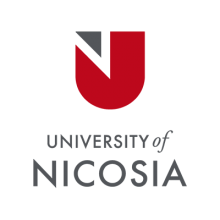





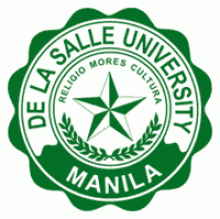
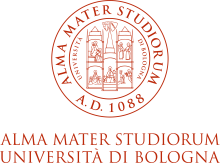



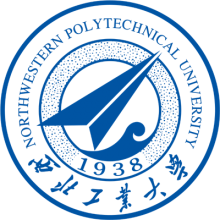

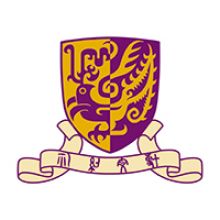


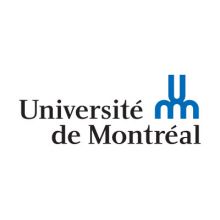
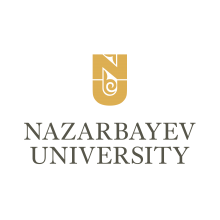
Have your say